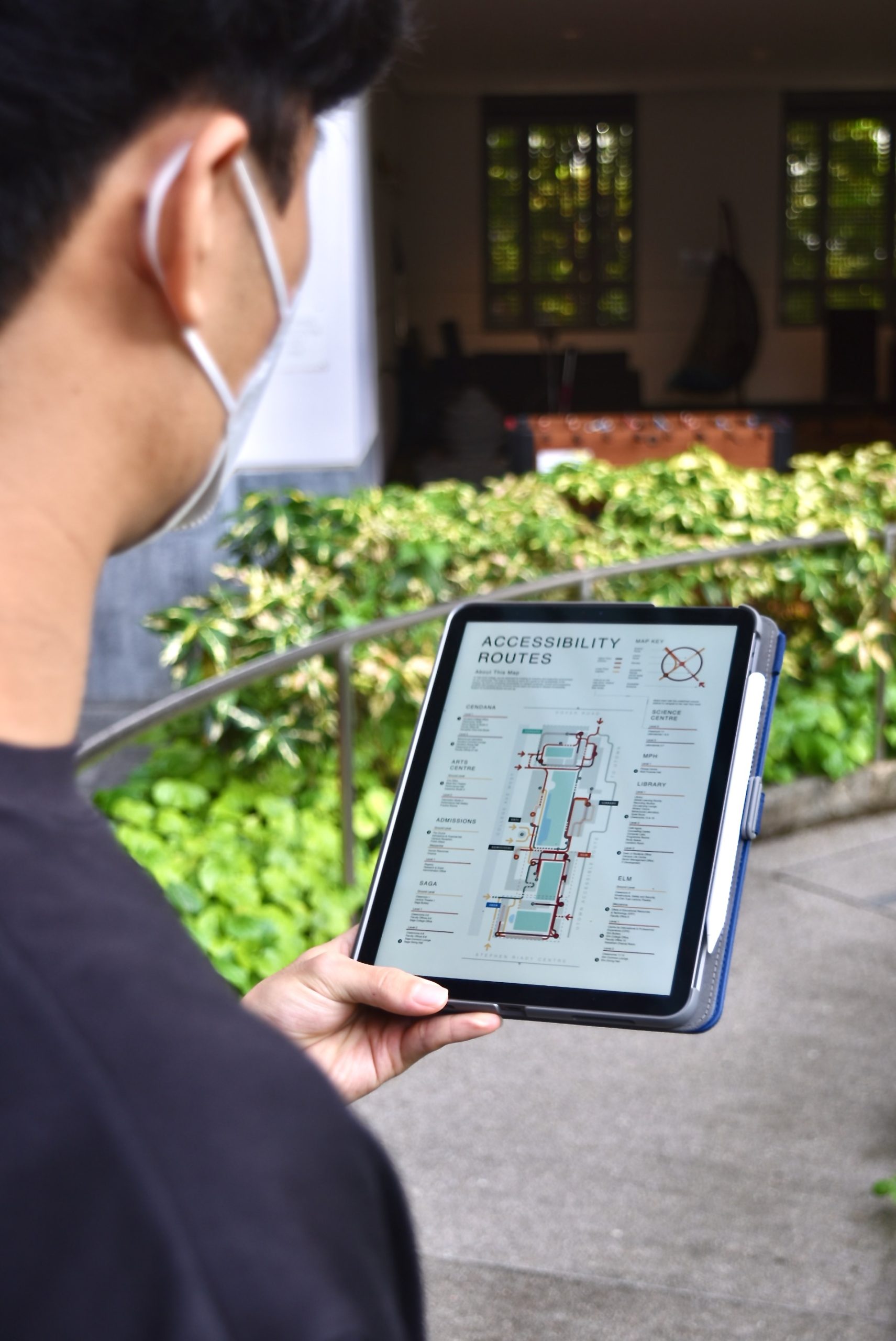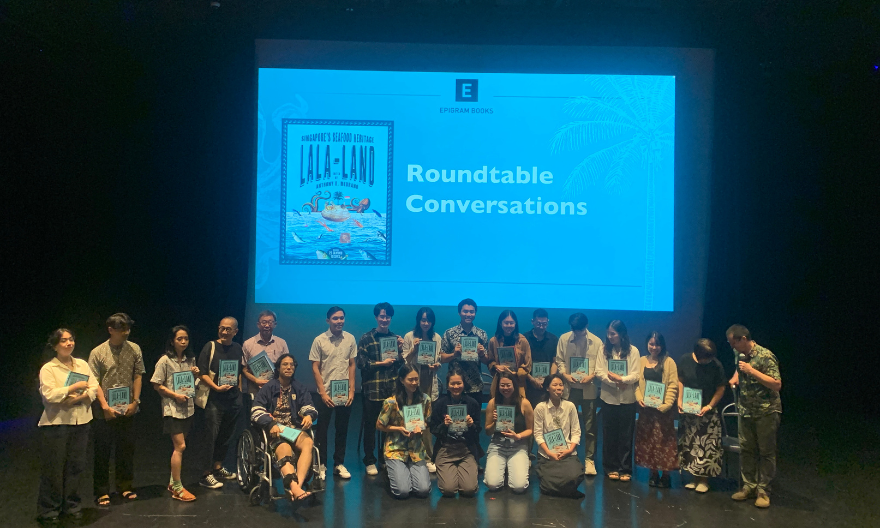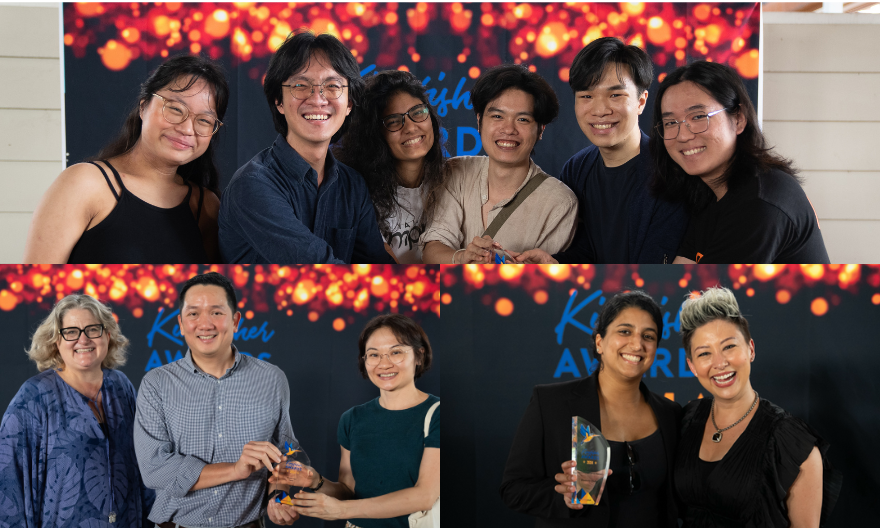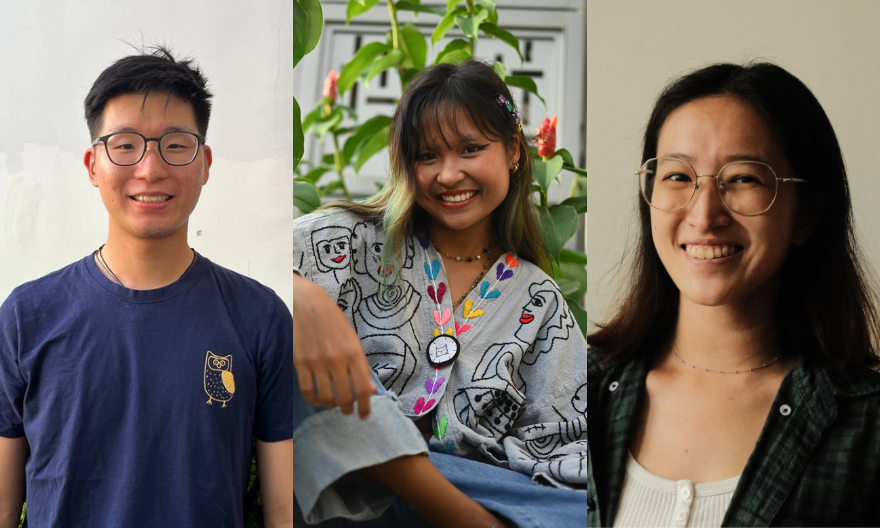Cultivating diversity, equity, and inclusion among faculty and staff
Programmes and efforts across Yale-NUS faculty and staff underscore the College’s commitment to nurturing a diverse, fair, and inclusive community
 Having the knowledge of and practising diversity, equity, and inclusion help staff and faculty ensure that everyday engagement on campus is fair and inclusive for all. Image by Yale-NUS College.
Having the knowledge of and practising diversity, equity, and inclusion help staff and faculty ensure that everyday engagement on campus is fair and inclusive for all. Image by Yale-NUS College.
Nurturing a close-knit community built upon the principles of diversity and inclusion has always been a core tenet of the Yale-NUS experience. The latest effort to ensure this is a year-long study – Diversity, Equity, and Inclusion (DEI) – which was commissioned by Executive Vice President (Academic Affairs) Joanne Roberts to study our DEI progress and inform future policies.
In the first of this two-part series, we highlight ways in which the College continually promotes DEI best practices among its staff and faculty through comprehensive training, administrative changes and campus initiatives, and how these efforts create a fair and inclusive community.
For our faculty, extensive mentoring to promote DEI objectives starts from the moment a new faculty member joins the Yale-NUS community. The Dean of Faculty Office oversees onboarding programmes which provide newcomers with useful information on Singapore’s cultural context, as well as practices on identifying and eliminating unconscious biases from teaching and learning. Faculty members are also given resources to navigate the cultural diversity of the College, including a guide on strategies to foster an inclusive classroom, which was developed in-house.
The initial session is part of a series of Junior Faculty Workshops to support new tenure-track faculty in their transition to teaching in a small liberal arts and sciences college where diversity and inclusion are integral. The workshops, therefore, include a dedicated session on DEI, which introduces participants to terms surrounding diversity, equity, and inclusion, and allows for discussions curated from real-life scenarios with a focus on intersectionality.
“Structured dialogues have been an integral part of numerous student events and workshops. The DEI sessions in the Junior Faculty Workshops are similar to the structured opportunities that students receive,” remarked Associate Dean of Students Cory Owen, who oversaw the workshop with Visiting Professor of Social Sciences (Economics) Pareena Lawrence.
“By having similar types of workshops for students, faculty, and staff, we hope that our entire community can bond over our growing understanding of how identities intersect and the ways in which our power and privilege impact our interactions in the world around us.”
These developments build upon a history of initiatives promoting diversity among faculty members. As noted in the DEI report, conscious efforts such as the recruitment of remarkably global faculty with diverse expertise have made DEI one of the College’s greatest hallmarks. Faculty members are recruited internationally and come from countries such as Argentina, China, South Africa, the United States, just to name a few.
 Yale-NUS faculty come from various backgrounds, which contribute to the diverse ideas and experiences within the classrooms. Image by Yale-NUS College.
Yale-NUS faculty come from various backgrounds, which contribute to the diverse ideas and experiences within the classrooms. Image by Yale-NUS College.
“It is truly refreshing to learn from faculty from so many cultures, each with their own experiences,” explained Ian Chai (Class of 2025), “I think that’s what makes Yale-NUS so unique.”
Non-teaching staff members also take part in training programmes which focus on developing cultural awareness and trust, advocating cross-cultural sensitivity in all contexts given the diverse context of the College. The training, conducted with the help of multinational coaches devoted to intercultural engagement, addresses issues such as communication across cultures and strategies for culturally sensitive behaviour changes.
However, efforts to promote DEI extend far beyond cultural awareness, and manifest in how support is planned and implemented by the administration. Recognising the need to holistically support students’ accessibility needs in and out of the classroom in a fully residential campus, Student Accessibility Support now falls within the ambit of the Student Affairs Office (SAO). The SAO works closely with the University Health Centre to provide a variety of accommodations, including note-taking assistance for students with hearing disabilities, and has created campus accessibility maps to help students with reduced mobility navigate the undulating campus terrain.
 Image of one of the new accessibility maps launched by the SAO this year, taken by Desmond Lee for Yale-NUS College.
Image of one of the new accessibility maps launched by the SAO this year, taken by Desmond Lee for Yale-NUS College.
Looking ahead, Yale-NUS hopes to integrate other crucial aspects of DEI into regular training and discussions for staff and faculty. For example, monthly faculty discussions on student mental health issues are slated to begin in the ongoing semester in response to the prevalence of mental health concerns among students worldwide. In addition, a greater awareness of local linguistic norms and practices is consciously promoted in faculty onboarding so that they are better able to adjust their teachings and interactions with students within the Singapore context. The College’s commitment to sustained outreach efforts to all our community members will also allow new and emerging DEI needs to be recognised and addressed quickly.





